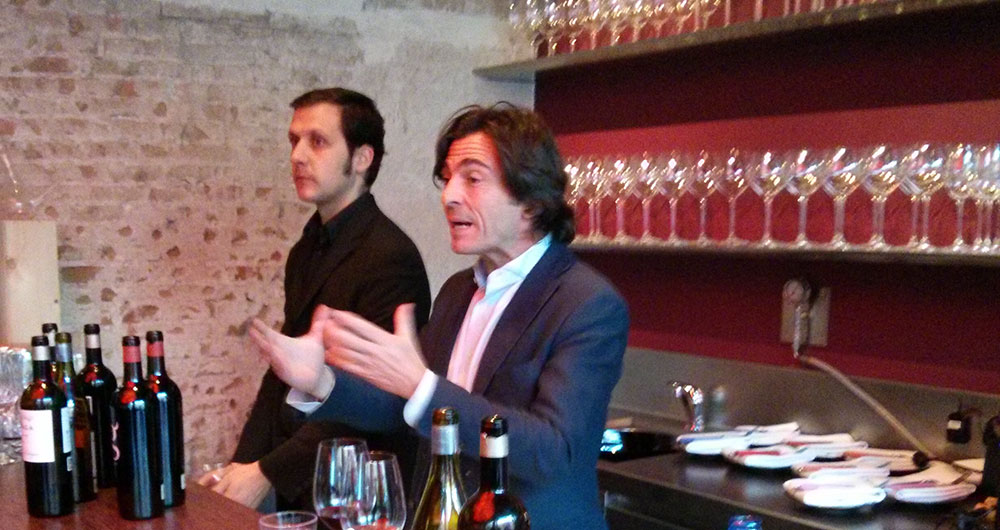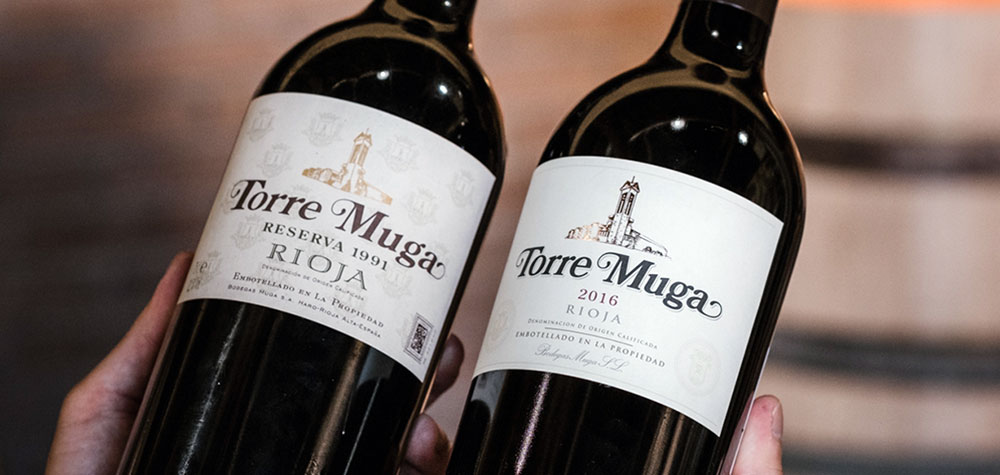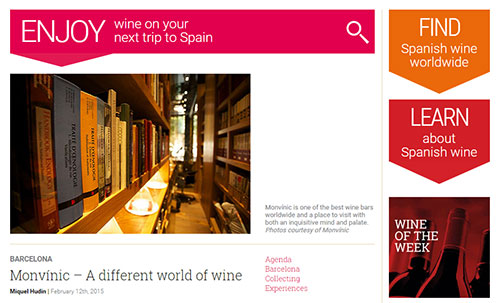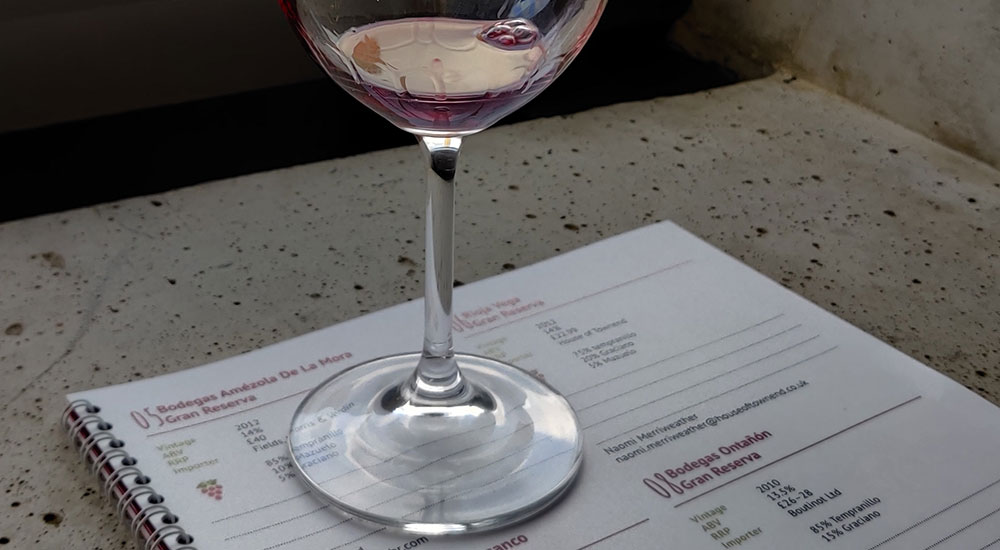We’ve been huge fans of the Bar-à-vins [sadly now defunct] in the Moritz beer factory since before it opened last September. Yes, that’s right, Barcelona’s best wine bar (together with Monvínic) is by a beer company (and yes, their official “website” is their google profile). And as if they needed to add to their awesomeness, earlier this month they started a weekly rendez-vous with some of the most interesting Catalan and Spanish winemakers every Monday evening.
The first one started strong with super-couple Sara Pérez and René Barbier presenting different wines they produce both in the DOQ Priorat and DO Montsant under different brands. Somehow we missed the last two events (probably on a writing binge), but made it to last night's rendez-vous with Telmo Rodríguez. He’s a really interesting fellow who’s making very personal wines in nearly a dozen different regions all over Spain, most of which he exports. Although in recent years he’s made quite a name for himself internationally with his terroir-driven Rioja wines, the first wine of his we tasted over a decade ago was the Mountain Wine he makes in Málaga, southern Spain. It’s a gorgeous dessert Muscat that, despite having tried many delicious Empordà dessert Muscats, is simply beyond compare.
The wines we tasted yesterday were just a small sample of Telmo’s large portfolio: the Gaba do Xila Godello from Valdeorras in Galicia; Lanzaga from Rioja; Gago from Toro; and M2 de Matallana, a Tinto Fino from Ribera de Duero.
Telmo talked a great deal and very passionately about wine, and not only about these four wines but about his general philosophy. He’s a firm believer in the locale, or terroir, above anything else. So for the last 25 years he’s been seeking out unique properties around Spain where vineyards had traditionally been grown, to make wines that show the personality of the place they come from. It’s Rioja in particular, where he thinks wineries have been focusing for too long on the winemaking process itself, on “barrel talk” and types of equipment as opposed to where their grapes come from. Apparently he’s had quite a few problems with the DO bodies over that thinking, as they only allow wine labels to mention where the winery is located and things like the barrel-aging regiment (crianza, reserva, gran reserva, etc) but not the specific origin of the grapes or the estate. He compared the Spanish focus on grape varietals and aging to define wines to that of France (where he studied enology), where a wine is simply “a Burgundy” or “a Bordeaux” as opposed to a Chardonnay, a Pinot, or a Reserva.
But all that doesn’t mean Telmo is not interested in the different types of grapes–quite the contrary. He’s been working tirelessly to reach the full potential of local grapes and to recuperate almost extinct varietals in some areas. As you might have guessed, he’s not a big fan of the internationalization of wine – that is, the homogenization of wine. And because of that he’s not a fan of large industrial wineries, either. He said a lot of people ask him if his Rioja wines are more classic in style, like those wines from the 1960s or more modern. He didn’t know what to say, as he thinks the real distinction is between industrial wineries that only seek cost-effectiveness and craft winemakers who seek the unique personalities of each vineyard. In that regard, he said that wine requires time. The key ingredient to make excellent wine, he said, is not money, a certain equipment, a certain grape or the best consultants in the world. It’s time to understand your vineyard, which takes years and often decades. He said he only started to grasp what he could do in a certain area after 15 years of working there.
As to the overall tastes of the wines, they were wonderfully balanced and full of character. Each bottle lived up to all of his claims and while completely refined and articulated, they still allowed plenty of breathing room to have a unique character unto themselves. They will merit a more in depth tasting at a later date.



